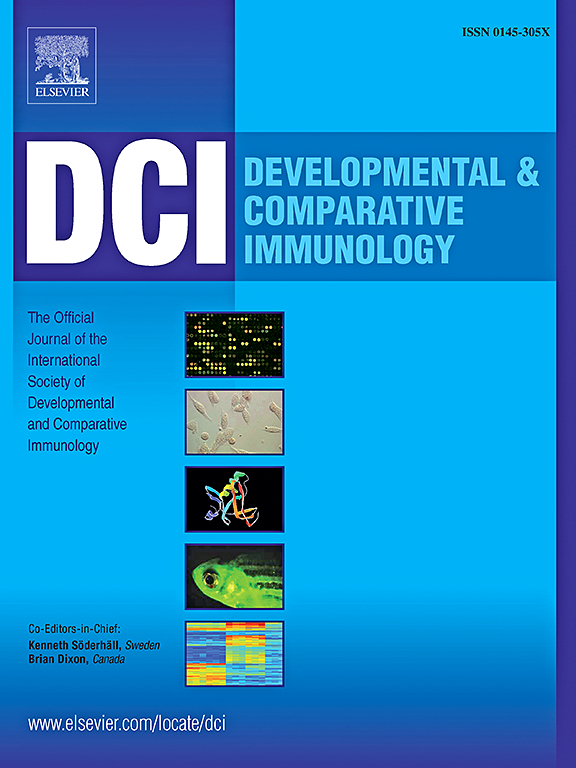Allogenic grafting induces PI3K-mediated tissue overgrowth in hydrozoan jellyfish Cladonema radiatum medusae
IF 2.4
3区 农林科学
Q1 FISHERIES
引用次数: 0
Abstract
Allorecognition, which is the ability of an organism to discriminate between self and non-self, protects multicellular animals from somatic cell/germline parasitism. We reported and characterised allorecognition in the stolons of colonies of the hydrozoan jellyfish Cladonema radiatum (C. radiatum) in our previous publication. C. radiatum has a free-swimming medusa form besides the sessile colonial form. In this study, we investigated the allorecognition responses in the medusa form of C. radiatum. By using grafting experiments, we observed that while C. radiatum medusae show tolerance to both isogenic and allogenic chimerism, allogenic grafting induces the formation of a form of circular scars—we refer to as “ring-shaped scars”—around the grafts on the host umbrella. Within the scars, overgrowth of tissues occurs with additional gastrovascular canal development. By pharmaceutical experiments, we found that tissue overgrowth is dependent on phosphoinositide 3-kinase (PI3K) and vascular endothelial growth factor (VEGF), showing a resemblance to mammalian neoplasia.
同种异体移植诱导pi3k介导的水螅水母组织过度生长。
同种异体识别是生物体区分自我和非自我的能力,可以保护多细胞动物免受体细胞/种系寄生。我们在之前的出版物中报道并描述了水螅类水母Cladonema radiatum (C. radiatum)菌落匍匐茎的异体识别。除了无根的群体形态外,C. radiatum还具有自由游动的水母形态。在本研究中,我们研究了水母形态的异体识别反应。通过嫁接实验,我们观察到尽管水母弧菌对等基因嵌合和同种异体嵌合都表现出耐受性,但同种异体嫁接诱导在宿主伞上的移植物周围形成一种圆形疤痕,我们称之为“环形疤痕”。在瘢痕内,组织的过度生长伴随着额外的胃血管管的发育。通过药物实验,我们发现组织过度生长依赖于磷酸肌肽3-激酶(PI3K)和血管内皮生长因子(VEGF),表现出与哺乳动物肿瘤相似的特征。
本文章由计算机程序翻译,如有差异,请以英文原文为准。
求助全文
约1分钟内获得全文
求助全文
来源期刊
CiteScore
6.20
自引率
6.90%
发文量
206
审稿时长
49 days
期刊介绍:
Developmental and Comparative Immunology (DCI) is an international journal that publishes articles describing original research in all areas of immunology, including comparative aspects of immunity and the evolution and development of the immune system. Manuscripts describing studies of immune systems in both vertebrates and invertebrates are welcome. All levels of immunological investigations are appropriate: organismal, cellular, biochemical and molecular genetics, extending to such fields as aging of the immune system, interaction between the immune and neuroendocrine system and intestinal immunity.

 求助内容:
求助内容: 应助结果提醒方式:
应助结果提醒方式:


